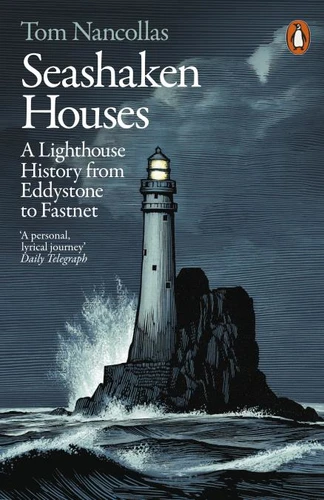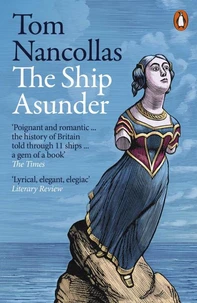Seashaken Houses. A Lighthouse History from Eddystone to Fastnet
Par :Formats :
Disponible dans votre compte client Decitre ou Furet du Nord dès validation de votre commande. Le format ePub protégé est :
- Compatible avec une lecture sur My Vivlio (smartphone, tablette, ordinateur)
- Compatible avec une lecture sur liseuses Vivlio
- Pour les liseuses autres que Vivlio, vous devez utiliser le logiciel Adobe Digital Edition. Non compatible avec la lecture sur les liseuses Kindle, Remarkable et Sony
- Non compatible avec un achat hors France métropolitaine
 , qui est-ce ?
, qui est-ce ?Notre partenaire de plateforme de lecture numérique où vous retrouverez l'ensemble de vos ebooks gratuitement
Pour en savoir plus sur nos ebooks, consultez notre aide en ligne ici
- Nombre de pages256
- FormatePub
- ISBN978-1-84614-939-9
- EAN9781846149399
- Date de parution04/10/2018
- Protection num.Adobe DRM
- Infos supplémentairesepub
- ÉditeurPenguin
Résumé
'A thrilling celebration of lighthouses' i newspaperAn enthralling history of Britain's rock lighthouses, and the people who built and inhabited themLighthouses are enduring monuments to our relationship with the sea. They encapsulate a romantic vision of solitary homes amongst the waves, but their original purpose was much more noble, conceived as navigational gifts for the safety of all. Still today, we depend upon their guiding lights for the safe passage of ships.
Nowhere is this truer than in the rock lighthouses of Great Britain and Ireland: twenty towers built between 1811 and 1904, so-called because they were constructed on desolate, slippery rock formations in the middle of the sea, rising, mirage-like, straight out of the waves, with lights shining at the their summits. Seashaken Houses is a lyrical exploration of these magnificent, isolated sentinels, the ingenuity of those who conceived them, the people who risked their lives building and rebuilding them, those that inhabited their circular rooms, and the ways in which we value emblems of our history in a changing world.
Nowhere is this truer than in the rock lighthouses of Great Britain and Ireland: twenty towers built between 1811 and 1904, so-called because they were constructed on desolate, slippery rock formations in the middle of the sea, rising, mirage-like, straight out of the waves, with lights shining at the their summits. Seashaken Houses is a lyrical exploration of these magnificent, isolated sentinels, the ingenuity of those who conceived them, the people who risked their lives building and rebuilding them, those that inhabited their circular rooms, and the ways in which we value emblems of our history in a changing world.
'A thrilling celebration of lighthouses' i newspaperAn enthralling history of Britain's rock lighthouses, and the people who built and inhabited themLighthouses are enduring monuments to our relationship with the sea. They encapsulate a romantic vision of solitary homes amongst the waves, but their original purpose was much more noble, conceived as navigational gifts for the safety of all. Still today, we depend upon their guiding lights for the safe passage of ships.
Nowhere is this truer than in the rock lighthouses of Great Britain and Ireland: twenty towers built between 1811 and 1904, so-called because they were constructed on desolate, slippery rock formations in the middle of the sea, rising, mirage-like, straight out of the waves, with lights shining at the their summits. Seashaken Houses is a lyrical exploration of these magnificent, isolated sentinels, the ingenuity of those who conceived them, the people who risked their lives building and rebuilding them, those that inhabited their circular rooms, and the ways in which we value emblems of our history in a changing world.
Nowhere is this truer than in the rock lighthouses of Great Britain and Ireland: twenty towers built between 1811 and 1904, so-called because they were constructed on desolate, slippery rock formations in the middle of the sea, rising, mirage-like, straight out of the waves, with lights shining at the their summits. Seashaken Houses is a lyrical exploration of these magnificent, isolated sentinels, the ingenuity of those who conceived them, the people who risked their lives building and rebuilding them, those that inhabited their circular rooms, and the ways in which we value emblems of our history in a changing world.




